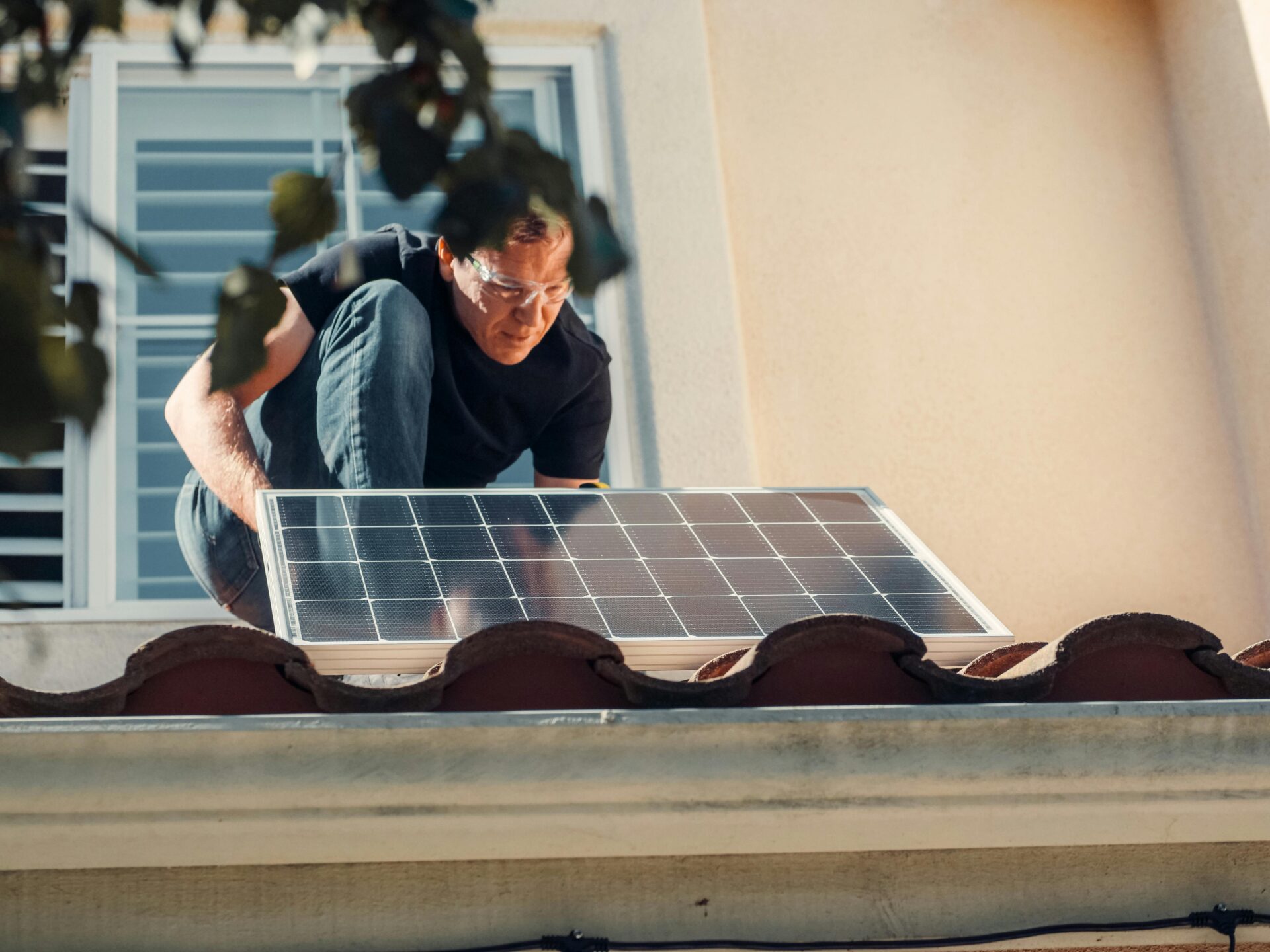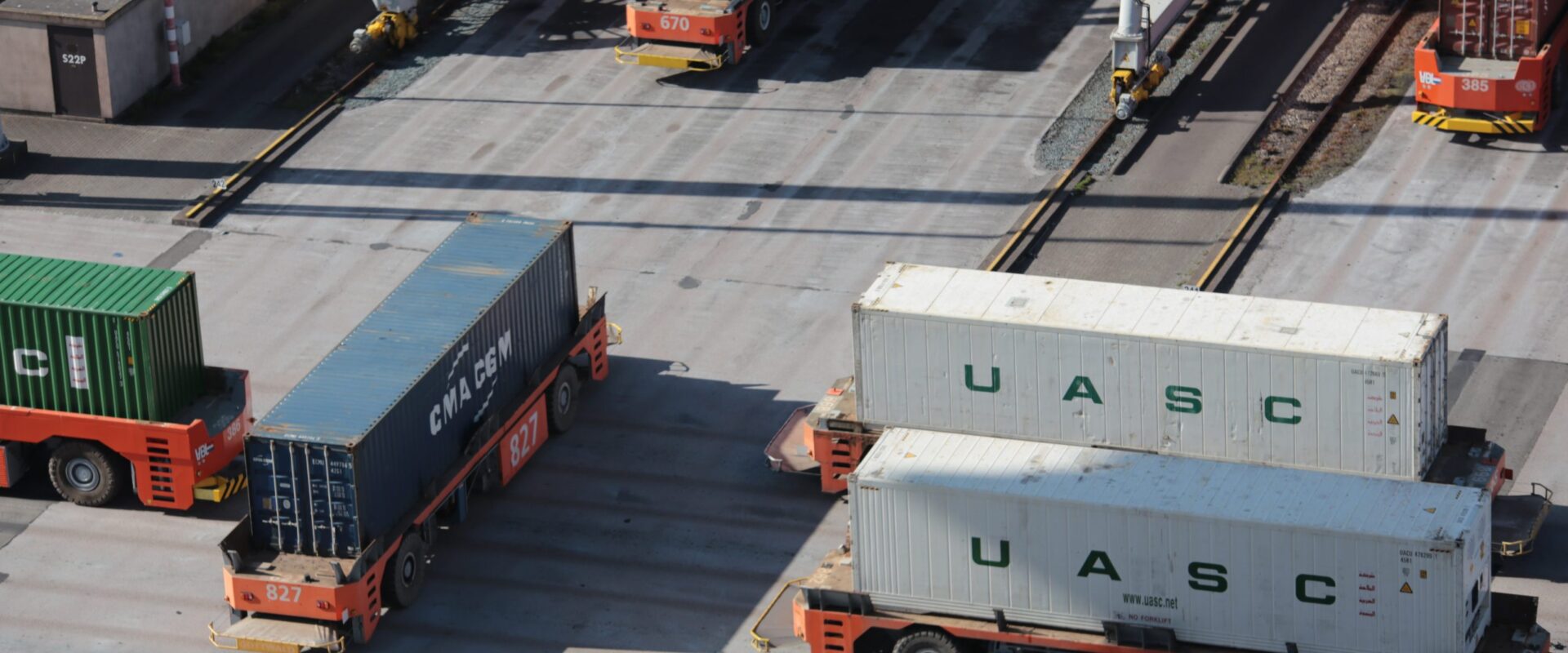Freshwater scarcity is undeniably an urgent issue for communities across the world. The planet’s demand for clean water is expected to increase by an alarming 40% by 2050, underscoring the reality that freshwater is a finite resource. A significant relief to the water shortage crisis lies within water reuse.
Spacedrip
Enabling localised wastewater reuse
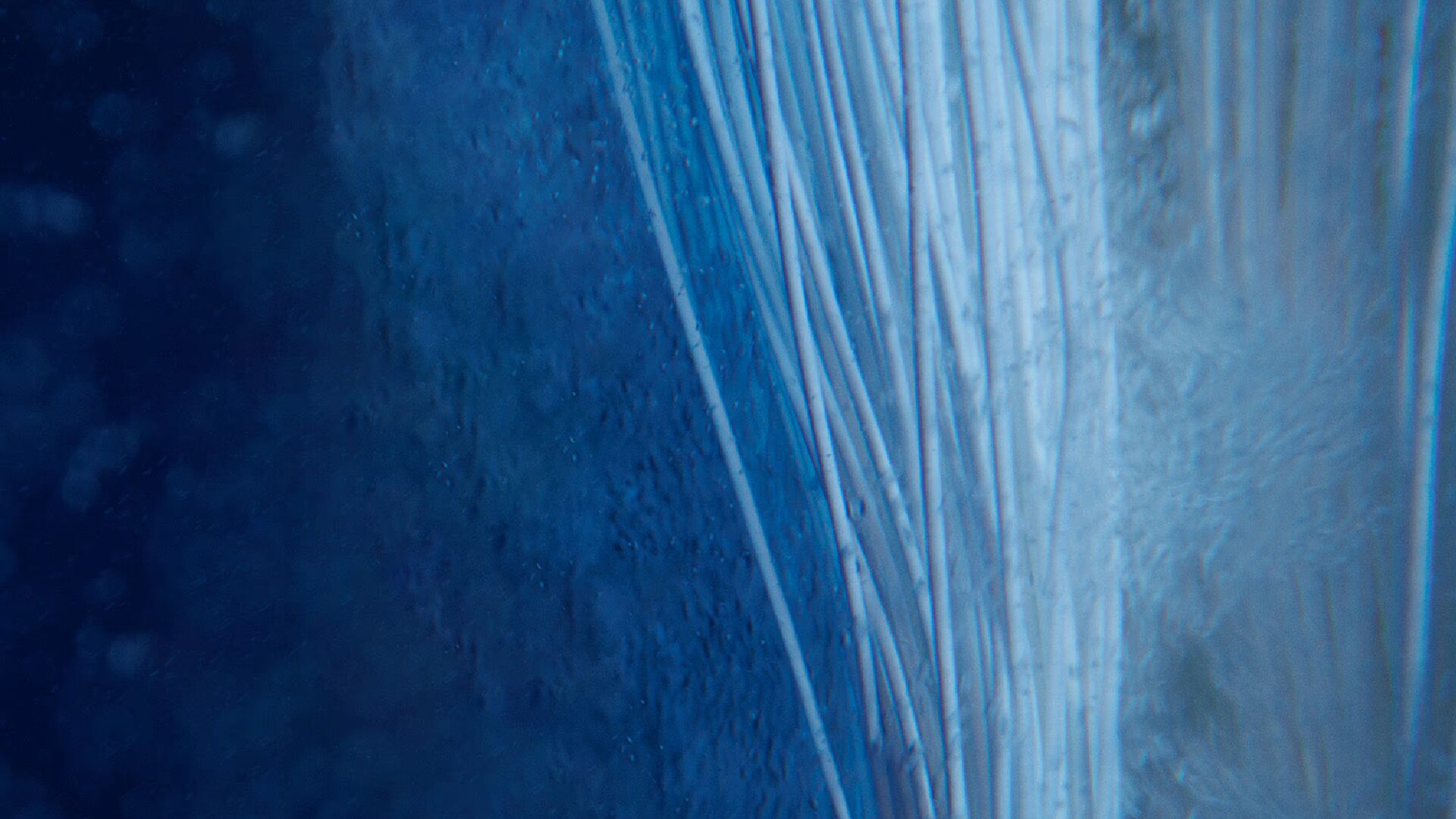
Introduction
Problem
Existing water reuse solutions predominantly use centralised systems, collecting large volumes of municipal wastewater from different households and treating it at a single site. Although effective in many urban settings, centralised networks are not as viable for dispersed, off-grid or otherwise water-stressed communities in need of access to clean water.
While Estonia is awash with groundwater, both its population and water resources are unevenly scattered, making it difficult and inefficient to solely rely on centralised systems. Estonia’s concerns are a drop in the ocean – by 2025, half of the world’s population could be living in water-stressed areas.
The current Estonian regulations do not support, and in some instances do not permit the introduction of local waste water recycling facilities. As various aspects of the law remain subject to interpretation, market participants wishing to provide decentralised water reuse systems are left with little legal certainty over regulations governing their technology.
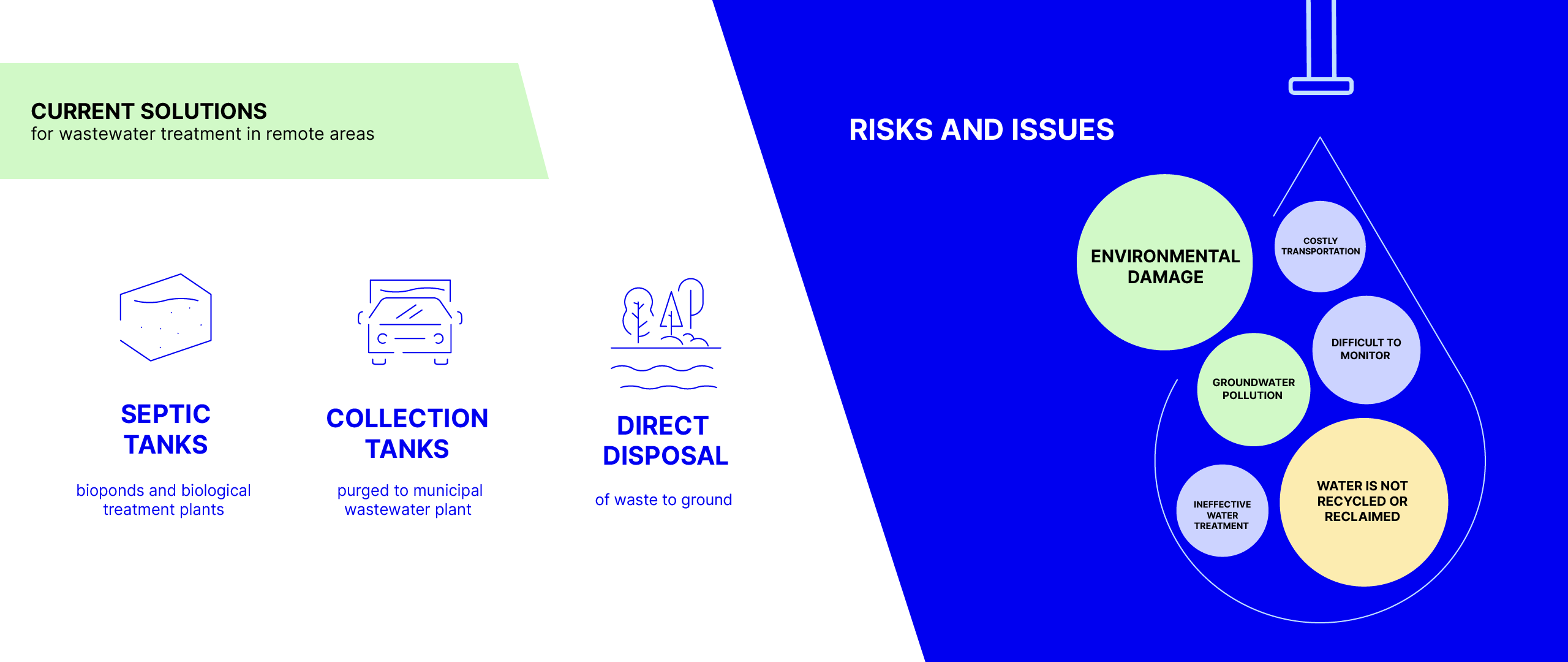
Solution
Decentralised water reusage systems, such as the one provided by the Estonian startup Spacedrip, offer localised alleviation in both urban and off-grid water-stressed areas.
Spacedrip’s fully automated wastewater treatment technology enables localised water purification in areas faced with limited clean water access and logistical issues of wastewater disposal without having to rely on an already existing centralised water infrastructure. Having previously raised €1.5 million for their solution, the company provides water purification robots to clients in industries such as the military, real estate development, hospitality as well as the public sector.
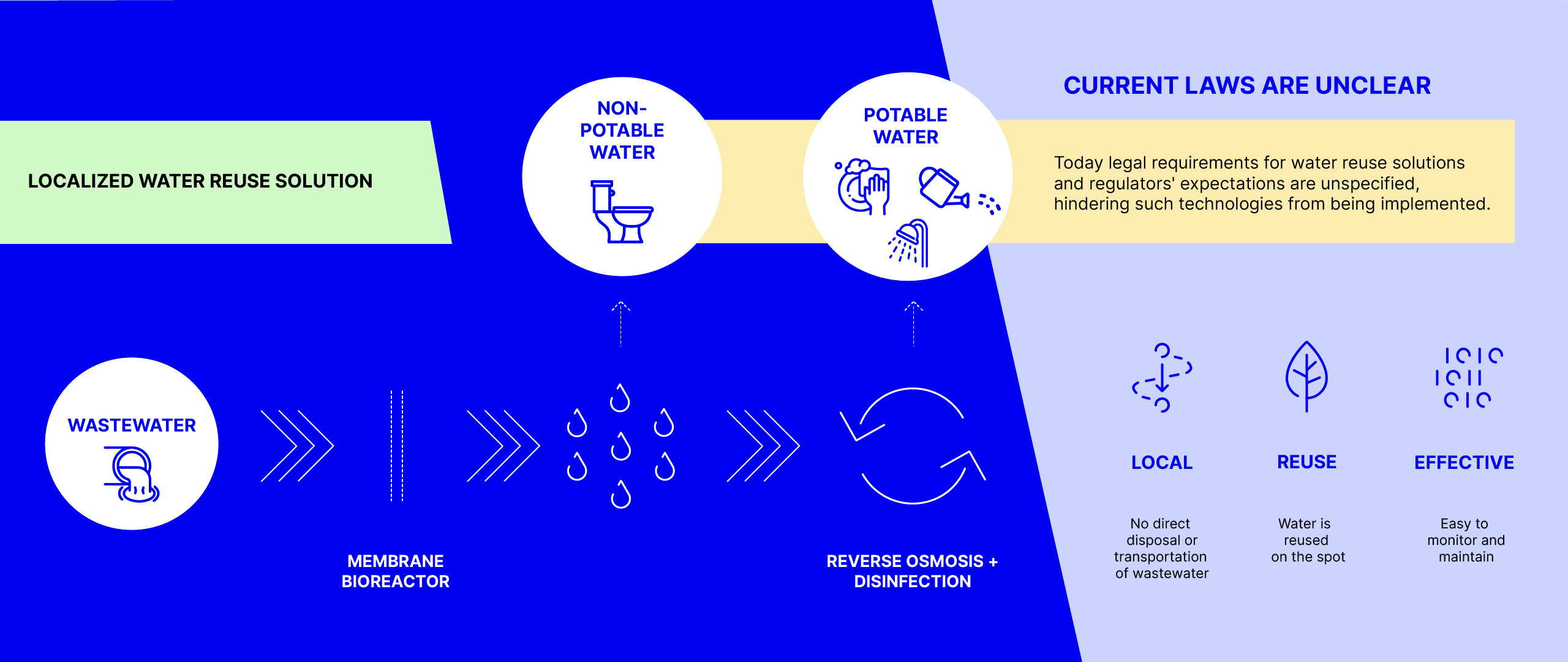
Result
As a result of the project, it was identified that the existing legislative framework and the standards supplementary to it are, in themselves, sufficient for local wastewater treatment solutions to operate in the market. However, it was found during the project that in several cases, an incomplete interpretation or a lack of awareness among local governments and water companies regarding the development of novel technologies and their potential benefits has become an obstacle.
In cooperation with the Ministry of Climate, the necessity of introducing definitions for greywater, technical water, and utility water more directly into legislation was analyzed. However, it was found that the current approach of using these definitions in building standards is sufficient at this time and does not represent a direct market barrier.
As further developments in the field, broader coordination and open communication between parties are needed so that information about novel solutions clearly reaches decision-makers in local governments, water companies, and the Environmental Board. As part of the project, a seminar for local governments was also conducted in cooperation with the Environmental Board, which introduced in more detail how local wastewater treatment plants can operate both legally and technically in Estonia. A positive example of developments in the field is the innovation project recently initiated by Viimsi municipality, in which wastewater will be locally reused on Prangli Island.
